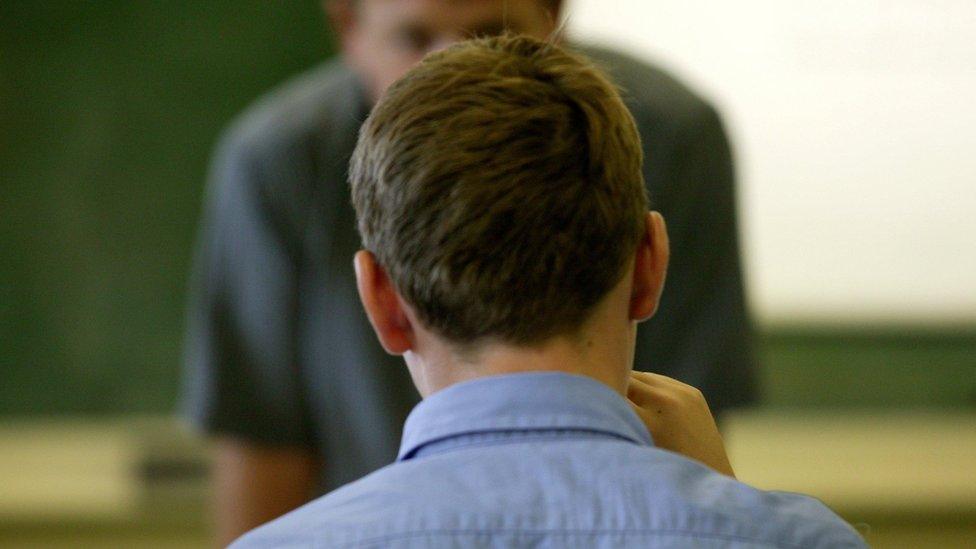LGBT pupil negative comments 'often unchallenged'
- Published

The study found many discriminatory comments went unchallenged
A study of LGBT young people has found 80% of pupils had encountered fellow students making homophobic, biphobic or transphobic remarks.
In many cases there was no intervention from pupils, teachers or other staff.
The research in Dumfries and Galloway has prompted a call for more to be done to tackle discriminatory language.
LGBT Youth Scotland said it was clear action was required. The EIS union said teachers used a range of approaches to deal with such issues.
The research received responses from nearly 400 pupils across the region.
Kerry Riddell of LGBT Youth Scotland said it was an issue that could have serious repercussions for the students involved.
'Real impact'
"It is a really big concern," she said. "We know that if a young person hears negative comments relentlessly about their identity, it is not particularly good for your mental health.
"It doesn't encourage you to come out if that's something that you were considering doing.
"Being in the closet for many years is not good for your mental health either so there's a real impact of that kind of relentless negative language that people hear."
She said a lot of the young people using discriminatory terms did not do it out of "badness".
"They just need to understand a bit more about the impact of it and that's really where professionals come in," she said.
"There is certainly more work to be done in schools to tackle it."
'Throwaway comments'
Ms Riddell said people needed to understand that what they thought of as "throwaway comments or banter" were actually "really harmful".
Andrew O'Halloran, local EIS secretary, said teachers were aware of the issue but dealt with it in different ways.
"It's unfortunate to realise that homophobia continues in our society and our schools," he said.
"Teachers should be aware that homophobia is completely out of place in modern society and teachers will be aware that they have to deal with it.
"Teachers may choose to deal with it overtly by challenging it, but there may be circumstances where they have to just go away and talk to someone else and this may be based upon knowledge of the class and the pupils in front of them."